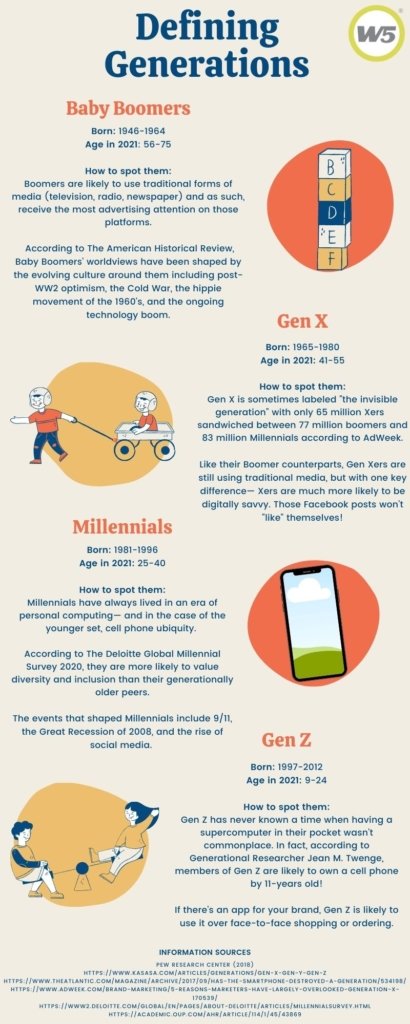Generations: Keeping Us Together or Pulling Us Apart?
How Gen Z Harnessed the Internet and Destroyed the Generation Wars
Millennials are About to Get Screwed Once Again
Gen X Participants Are Even More Sandwiched After COVID-19
Study Finds Baby Boomers Are More Sensitive Than Millennials
Those four news headlines listed above are obvious media examples of generational studies. It’s a tradition as American as apple pie―as one generation comes of age, sociological studies, both formal and informal, try to categorize and label the newcomers. (Almost every generation has been labeled “lazy” by the media, FYI. What gives?)
For cultural anthropologists, comparing generational divides puts people into neat groups to study and gives researchers metrics to talk about.
If you’ve engaged with the “chuegy” discourse this year, you’re all too familiar with entry-level generational research. It gets clicks. It’s something everyone can relate to. But does generational research really give us a better understanding of the people around us? How does generation research account for the wide range of personalities, interests, and divides between members of a generation? Is generational research just pseudoscience? Enter W5’s Theme of the Month.
In June, W5ers got together virtually to share stories and insights about GENERATION spurred by Kathy Justice’s Gen Z series. Theme of the Month discussions begin with an open dialog on the topic and this meeting was no different. We started by talking about how our generation has impacted us from the media we consume, the way we interact with technology, and how interacting with different generations impacts our jobs.
One thing was made abundantly clear―there are a lot of perspectives about how to look at generational divides. Here are a few takeaways and observations from our discussion:
No Matter the Generation, We Are Shaped by The World Around Us
To truly understand how generations are divided, it is crucial to get to know them first. Our team created this graphic for our Twitter page explaining exactly where each generation falls, the age they are in 2021, and the events that shaped their worldviews. One piece of information that stands out is the spread of technology as we move to younger and younger generations. How does internet culture and the ubiquity of smartphones change the way we communicate? Some W5ers observed that younger generations are less likely to make small talk before a meeting, adding credence to the argument that younger generations might be a little more “in their own world” per se.
Generational Research Isn’t Always the Answer
What do seven-year-old Prince George and rapper Lil Pump have in common? Well, not much besides both being members of Gen Z. Thinking about generational divides this way admittedly makes them seem a little silly. In this study from BHH Labs, Harry Guild argues that individual members of a generation may have very little in common. Guild writes, “The truth is that these ‘generations’ are simply random collections of people who share no special connection beyond being born within two decades of each other.” For example, Millennials on either cusp of their generation are likely to have grown up with entirely different experiences on social media and American Baby Boomers on either cusp of their generation grew up in entirely different political eras.
Don’t Leave Gen X Behind
As Millennials and now Gen Z become the target of marketing attention, it’s no wonder that Gen X feels a little miffed. Often coined the “forgotten generation,” Gen X sometimes gets lost in the shuffle between two larger generations. And worse, some of the Generation studies about Gen X can be downright mean. The “Slacker Generation” isn’t made up of slackers at all. One W5er (who identifies as a Gen Xer) totally felt the strain. They shared this frankly titled article from Gizmodo: Generation X Is Sick of Your Bullshit. So, what is the best way to reach Gen X in the first place? Pay attention to them!
We believe great research starts with asking questions and creating connections to understand different viewpoints and life experiences. What do generational differences look like for your team? Do you think they matter at all?


